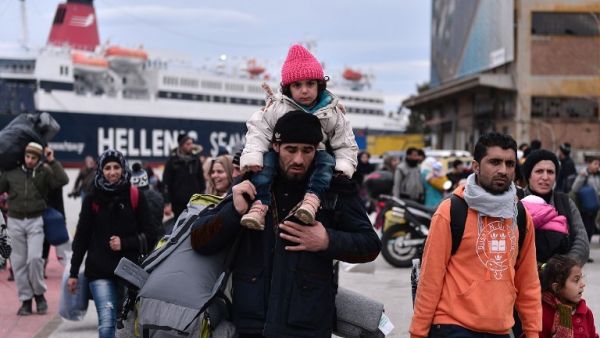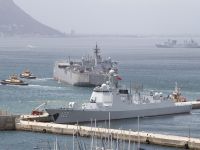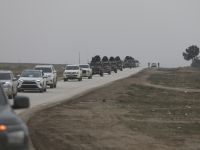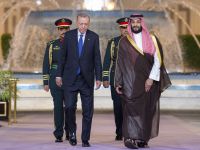NATO ministers decided Thursday on immediate steps to help curb migrant-smuggling networks operating between Turkey and Greece by deploying ships to monitor the sea route.
The continent has been struggling to deal with a surge in migration that saw more than 1 million people arrive last year. Many are asylum seekers fleeing the war in Syria, but economic migrants have also joined their ranks.
The main crossing point into Europe last year was via Turkey, where migrant smugglers encourage people to undertake the short sea journey to Greece's Aegean islands. More than 340 people are estimated to have died during the crossing since January 1.
"There is now a criminal syndicate which is exploiting these poor people," said US Secretary of Defence Ashton Carter. "Targeting that is, I think, the way that the greatest effect can be had."
Following Thursday's decision, NATO ships that are already stationed in the Mediterranean will be redirected "without delay" to "conduct reconnaissance, monitoring and surveillance of the illegal crossings in the Aegean sea," NATO Secretary General Jens Stoltenberg said.
"This is not about stopping or pushing back refugee boats," he added.
But any migrants in distress who are rescued by NATO will be returned to Turkey, under a provision firmly agreed with Ankara, according to German Defence Minister Ursula von der Leyen. "This sends a clear signal to the smuggling gangs," she said.
NATO's current deployment to the Mediterranean consists of three vessels under German command, Stoltenberg said, adding that other allies had expressed their willingness to reinforce this group.
They will pass information to the Greek and Turkish coastguards, while cooperating also with EU border agency Frontex, the NATO chief added. Technical details, for example on information-sharing with the European Union, still need to be finalized.
The full operational concept is to stand by February 24, according to von der Leyen. This does not preclude activities from starting sooner under the existing naval mission.
The European Commission welcomed NATO's involvement, with spokesman Margaritis Schinas expressing hope that it would help save lives and secure Europe's borders.
"The 10 kilometres that separate the Turkish coast from the Greek islands cannot become a paradise for traffickers," he said.
NATO will also intensify its intelligence and surveillance activities at the Turkish-Syrian border, Stoltenberg said, noting that Ankara is "on the frontline of this crisis."
The idea to involve NATO in the migration crisis was floated Monday in a meeting between Turkish Prime Minister Ahmet Davutoglu and German Chancellor Angela Merkel in Ankara.
The formal request was submitted by both countries, plus Greece. It includes a commitment by Ankara and Athens not to enter each other's waters, sidestepping a long-running territorial dispute between the two sides.

Hundreds of migrants and refugees walk at the port of Piraeus upon their arrival from the island of Lesbos on February 10, 2016. (AFP/Louisa Gouliamaki)







